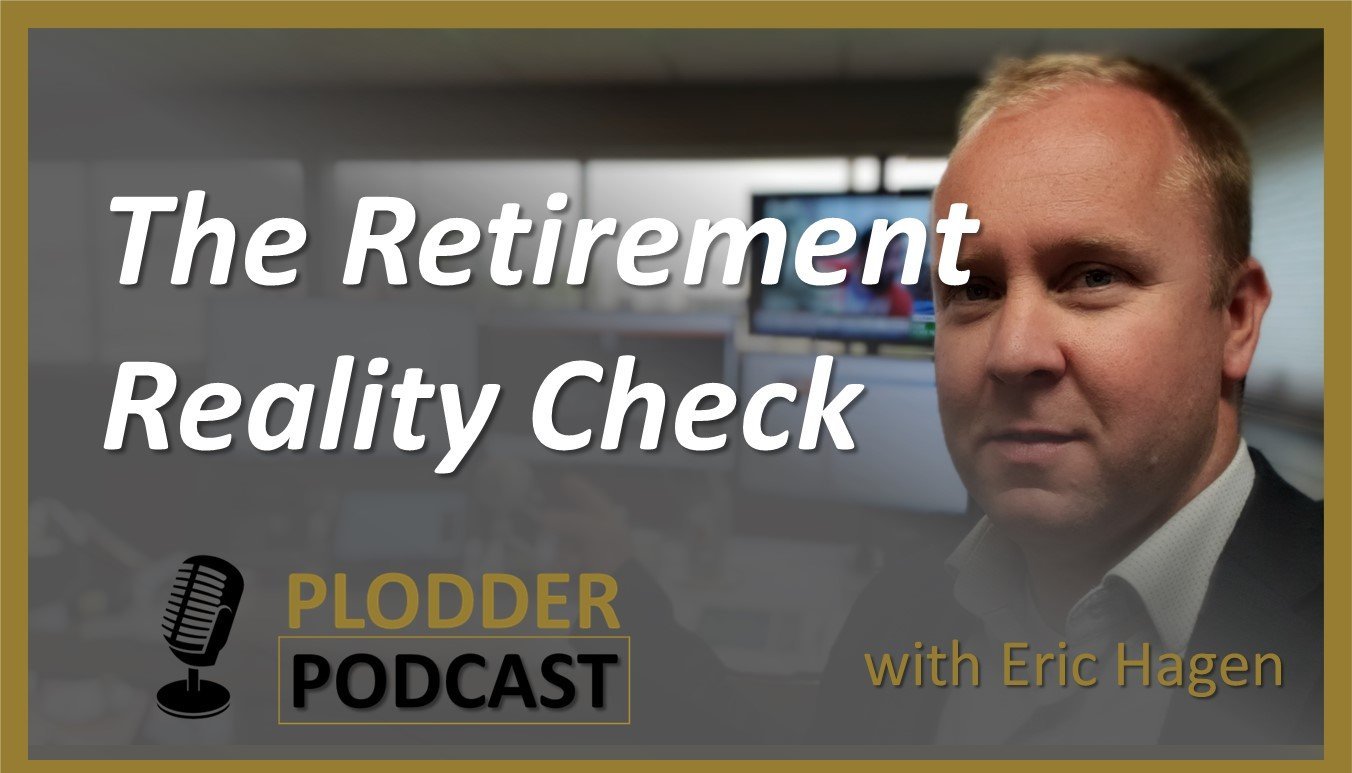The Retirement Reality Check - PlodderPodcast #21
Subscribe
TRANSCRIPT:
If retirement is on your horizon, today we’re going to look at some little things to keep in mind for life after work.
Decades ago, there was a book entitled What They Don’t Teach You at Harvard Business School. Perhaps someday, another book will appear to discuss certain aspects of the retirement experience that go unrecognized - the “fine print”, if you will. Here are some little things that can be frequently overlooked.
How will you save in retirement? More and more baby boomers are retiring with the hope that they can become centenarians. That may prove true thanks to healthcare advances and generally healthier lifestyles.
We all save for retirement; with our increasing longevity, we will also need to save in retirement for the (presumed) decades ahead. That means more than budgeting; it means investing with growth and tax efficiency in mind year after year.
Could your cash flow be more important than your savings? While the #1 retirement fear is someday running out of money, your income stream may actually prove more important than your retirement nest egg. How great will the income stream be from your accumulated wealth?1
You might have heard of the 4% rule, the concept that retirees should plan to withdraw 4% of the funds in their retirement account balance for each year of retirement. The truth is, figuring out how much money you can or should withdraw each year from your retirement account is a complicated calculation that’s often best left to a financial professional.2
Opinions vary, and your strategy should always take into account your unique situation. For example, some research suggests that 3.3% is a better goal than 4%. That means, assuming a $1 million account balance, you’d withdraw $33,000 instead of $40,000 during your first year of retirement. A $7,000 annual difference could present you with significant budgeting decisions to make.2
What will you begin doing in retirement? In the classic retirement dream, every day feels like a Saturday. Your reward for decades of work is 24/7 freedom. But might all that freedom leave you bored?
Impossible, you say? It happens. Some people retire with only a vague idea of “what’s next”. After a few months or years, they find themselves in the doldrums. Shouldn’t they be doing something with all that time on their hands?
A goal-oriented retirement has its virtues. Purpose leads to objectives, objectives lead to strategies, and strategies can impart some structure and order to your days and weeks – and that can help cure retirement listlessness.
Will your spouse want to live the way that you live? Many couples retire with shared goals, but they find that their ambitions and day-to-day routines differ. Over time, this dissonance can be aggravating. A conversation or two may help you iron out potential conflicts. While your spouse’s “picture” of retirement will not simply be a mental photocopy of your own, the variance in retirement visions may surprise you.
When should you (and your spouse) claim Social Security benefits? “As soon as possible” may not be the wisest answer. An analysis is needed. Talk with the financial professional you trust and run the numbers. If you can wait and apply for Social Security strategically, you might realize as much as hundreds of thousands of dollars more in benefits over your lifetimes.
Eric Hagen may be reached at 952-540-0153 or Eric@InvestWithCCG.com.
www.EricHagen.pro
This material was prepared by MarketingPro, Inc., and does not necessarily represent the views of the presenting party, nor their affiliates. This information has been derived from sources believed to be accurate. Please note - investing involves risk, and past performance is no guarantee of future results. The publisher is not engaged in rendering legal, accounting or other professional services. If assistance is needed, the reader is advised to engage the services of a competent professional. This information should not be construed as investment, tax or legal advice and may not be relied on for the purpose of avoiding any Federal tax penalty. This is neither a solicitation nor recommendation to purchase or sell any investment or insurance product or service, and should not be relied upon as such. All indices are unmanaged and are not illustrative of any particular investment. Investments seeking to achieve higher rate of return also involve a higher degree of risk.

